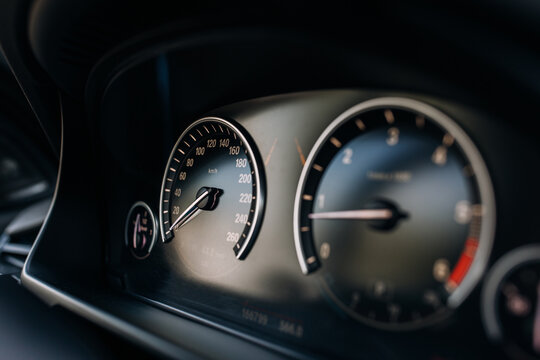If you’re a car owner, you know how important it is to keep your car running efficiently and cost-effectively. Keeping your car in good health is essential for achieving maximum fuel efficiency, but how do you do it? In this blog post, we’ll be discussing 101 power tips that can help you get the most out of your car and save money on gasoline. Read on to discover how to drive smarter and make sure your automotive engine runs optimally.
Understand Your Car’s Fuel Efficiency
Understanding Your Car’s Fuel Efficiency
If you want to conserve fuel, you first need to understand how your car is using it. Every car is different, so there is no one-size-fits-all answer to this question. However, there are some general tips that will help you maximize your car’s fuel efficiency.
One way to improve fuel efficiency is to track your car’s operating costs and mileage. This information can help you identify areas where you can save money on gasoline.
Another way to improve fuel efficiency is to monitor your tire pressure. When your tires are properly inflated, they use less fuel to move your car. Overinflating your tires can also cause them to wear out faster, which will reduce your car’s fuel efficiency.
Finally, make sure you are using the right gasoline for your car. Some cars require premium gasoline because they require more power to operate efficiently. If you do not know which type of gasoline your car requires, consult the owner’s manual.
Once you have understood how your car uses fuel, it is important to practice good habits in order to conserve fuel. These habits include:
- Driving slowly in traffic
- Avoiding long trips
- Avoiding heavy acceleration and braking
- Checking your tire pressure regularly

Track Your Vehicle’s Operating Costs and Mileage
Tracking Your Vehicle’s Operating Costs and Mileage
Knowing how much your car costs to operate and how many miles it’s been driven is an important part of maximizing fuel efficiency. The most accurate way to track these figures is with a car tracking device, such as a fuel economy monitor. However, you can also track your car’s operating costs by keeping track of your regular expenses, such as oil changes, tune-ups, and tire replacements.
Monitoring Tire Pressure to Optimize Fuel Efficiency
Tire pressure is one of the most important factors in optimizing fuel efficiency. Overinflated tires consume more fuel and can cause decreased performance and increased emissions. To optimize fuel efficiency, check your tire pressure at least once a month and adjust it as needed.
Monitor Tire Pressure to Optimize Fuel Efficiency
The key to maximizing fuel efficiency in your automotive guide is to monitor tire pressure. When tires are properly inflated, they use less energy when driving and perform better in cold weather conditions. Overinflation can cause your tires to wear more quickly, reduce their lifespan, and increase your chances of a blowout. Check the inflation pressure regularly using a reliable gauge and consult the owner’s manual for more specific instructions on how to check and change tire pressure.
Choose the Right Gasoline for Maximum Efficiency
Understand Octane Ratings
Understand octane ratings, and use the right gasoline for maximum fuel efficiency. Octane rating is a measure of a fuel’s ability to resist “knocking” or “pinging” during combustion. In general, higher octane ratings are better for engines that require high compression ratios (such as racing cars), while lower octane ratings are better for engines with lower compression ratios (such as regular passenger vehicles).
An engine’s piston rings can only push so much air and fuel into the engine before knocking occurs. The higher the octane number of the fuel, the less severe this knock will be. However, because most fuels also contain additives to stabilize them, using a too-high octane rating can actually damage an engine beyond repair.
Therefore, it is important to use the correct octane rating for the fuel you are using. To find the octane rating of a fuel, simply divide the fuel’s name by 100. For example, regular unleaded gasoline is octane rated 87.
Select the Right Grade of Gasoline
Selecting the right grade of gasoline is one of the most important factors in achieving maximum fuel efficiency in your automotive guide. The higher the octane rating, the more compression the fuel can withstand before detonating. This means that premium gasoline will not only provide better performance but also be more resistant to pre-ignition, or the sudden ignition of the air/fuel mixture in the engine.
While there is no one perfect grade of gasoline, a good starting point is to select a fuel with an octane rating of 87 or higher. In addition to providing better performance and preventing pre-ignition, premium fuels also tend to be more expensive than regular gasoline. If you can afford it, go for the best!
Consider Fuel Additives
When it comes to maximizing fuel efficiency in your automotive guide, it’s important to choose the right grade of gasoline. Not all grades are created equal, and some can actually cause your engine to work less efficiently. To get the most out of your engine, always select a grade of gasoline that is labeled as “premium.” Premium gasoline is typically made from higher quality crude oil and has been refined more than regular gasoline. It’s also more expensive, but it’s worth it if you want to achieve maximum fuel efficiency.
One common additive used in premium gasoline is octane. Octane is a measure of a fuel’s ability to resist “knocking” or “pinging” during combustion. Higher octane fuels are better for engines that require higher compression ratios, such as performance cars. However, too much octane can also be harmful to your engine and cause it to work less efficiently.Always consult your car’s owner’s manual to see what grades of gasoline are recommended for your vehicle. And don’t forget to use a fuel additive if you’re using regular gasoline – even premium fuels can benefit from the addition of a fuel enhancer like octane booster.
Monitor Your Vehicle’s Performance
When it comes to getting the most out of your automotive performance, choosing the right gasoline is key. While there are many factors to consider, monitoring your vehicle’s performance can help you identify areas where you may be losing fuel efficiency.
Consider Fuel Additives
One of the first steps in maximizing fuel efficiency is deciding which additives to use in your gas. When shopping for filters, make sure to ask about additive content – some brands may include harmful chemicals that can affect engine performance and cause unpleasant odors. If possible, opt for a full synthetic fuel with no additives at all; this will provide better combustion and fewer emissions.
Regular Maintenance and tune-ups also play an important role in conserving fuel – keep your vehicle’s air filters clean and replace the spark plugs and air filter every 7,500 miles. And finally, make sure to drive at a consistent speed – going too fast for the conditions will waste fuel.
Perform Regular Maintenance on Your Automotive Guide
When your automobile is idling, the engine is not using its full power potential. In order to maximize fuel efficiency while your car is sitting in idle, make sure to turn off unnecessary accessories and optimize the air conditioning and fan settings. You can also try turning off the A/C when you start the car in hot weather.

Reduce Idling Time to Conserve Fuel
Remove unnecessary weight from your vehicle by following these simple tips:
- Unload the trunk of your car
- Remove heavy accessories, such as a big stereo or an air conditioner
- Use a cargo net to lug large items into the house
Do Not Overload Your Automotive Guide
Do not overload your automotive guide, as this can cause it to wear out prematurely. Additionally, engaging in heavy duty tasks such as loading or unloading cargo can excessively strain your engine and reduce fuel efficiency.

Lighten Up – Remove Unnecessary Weight When Possible
When cruising in your automobile, it is important to maintain a safe speed and avoid exceeding the posted limit. By doing so, you will conserve fuel and prolong the life of your automobile.
Utilize Cruise Control For Optimal Performance
Cruise control is a great way to conserve fuel and optimize your vehicle’s performance. When you use cruise control, your car will maintain a set speed, regardless of the traffic conditions.
By following these simple tips, you can ensure that your automotive guide is running at its peak efficiency and performance. Regular maintenance, monitoring of tire pressure, and utilizing cruise control are all important steps to achieving maximum fuel efficiency. With the right care and attention, you can maximize the efficiency of your automotive guide and save money on fuel costs in the long run.

